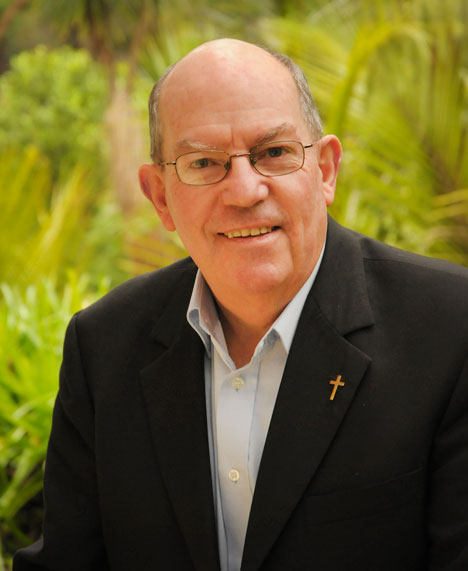 May 2014
May 2014
Feature
Fr James Lyons
Why young people are emerging from Catholic schools without a committed relationship with Jesus Christ is ‘the highest priority issue for all involved in Catholic education.’
This concern is made clear in a message from New Zealand’s Catholic Bishops to all delivering ‘Catholic education in Aotearoa New Zealand’ – parents, teachers, Boards of Trustees.
In their 26-page publication, The Catholic Education of School-Age Children, the bishops cover the nature, purpose and structure of the Catholic school, the significance of ‘Catholic Character’, the requirements and resourcing of Catholic educators, and probe the question of forming committed Christians in a secular environment.
They draw on the doctoral studies of Chris Duthie-Jung which show a break between what young Catholics learn about Jesus through the religious curriculum and how that knowledge translates into their own personal lives. There is a distinct ‘lack of difference’ between most of the young Catholics surveyed and their non-Catholic peers.
Proclaiming the word of God, celebrating the sacraments and living the ministry of charity, are ‘inseparable’ components of the mission of the church and teaching them is fundamental to Catholic education.
Our schools reflect what identifies the church, making them ‘not just another school, the equivalent of a state school with the addition of a religious education programme’, but a unique expression of the church in action.
Certainly, New Zealand Catholic schools do not exist in a vacuum. They are an integral part of the state educational system. But neither do they exist in isolation from one another. They are part of a cooperative which takes the ‘common good’ as its guiding principle.
The task of the Catholic school is to bring together ‘culture and faith’, guiding the child to see the relevance of faith to daily life situations. For instance, understanding the whole of creation as ‘God’s garden’ instils a reverence for all of life and an acceptance of responsibility for the care and development of their world. The bishops quote Pope Benedict XVI (2008):
First and foremost, every Catholic educational institution is a place to encounter the living God who in Jesus Christ reveals his transforming love and truth.
Facilitating that ‘encounter’, the bishops write, is an essential function of the Catholic school. It is the means of ensuring a ‘passion’ in the student for the gospel values.
Baptism sets us on a journey with the gift of faith. For that faith to grow and mature there must be guidance and opportunities to question through prayer and study.
‘The disciple’s journey begins with a personal encounter with God,’ the document states, and integrating faith with life. The importance of parents as ‘the first teachers of faith’ is stressed as is the partnership between school and parish.
But the bishops emphasise the absolute importance of the gospels as the source of values to be promoted and point to the distinction of values, which are not all ‘consonant with moral and ethical behaviour’ and virtues, which ‘stem from the nature of God…(and)…give us the strength to do what is right’.
They call for further research as well as greater efforts to ensure access to Catholic education, including reaching out to Catholic children attending state schools.
This is a document well worth reading for the history it provides and the challenges it offers.
There has never been any room for complacency in Catholic education. Identifying the present challenges does not throw a shadow over the work of dedicated people. It is simply a means of keeping the approach to Catholic education attuned to the needs of the times, a process which can be invigorating if the overall objective is clearly before all those who play a role in this great work.
Fr James Lyons is parish priest of Sacred Heart Cathedral.